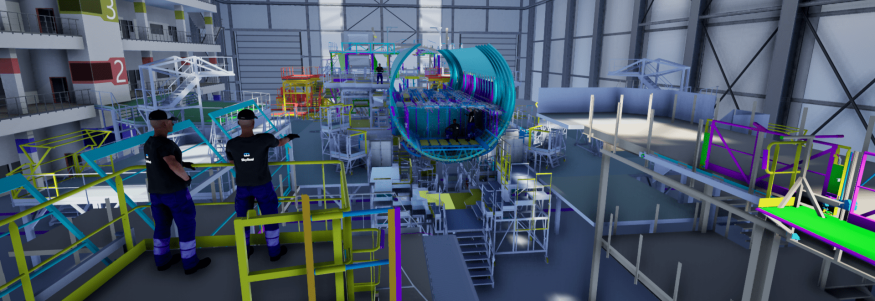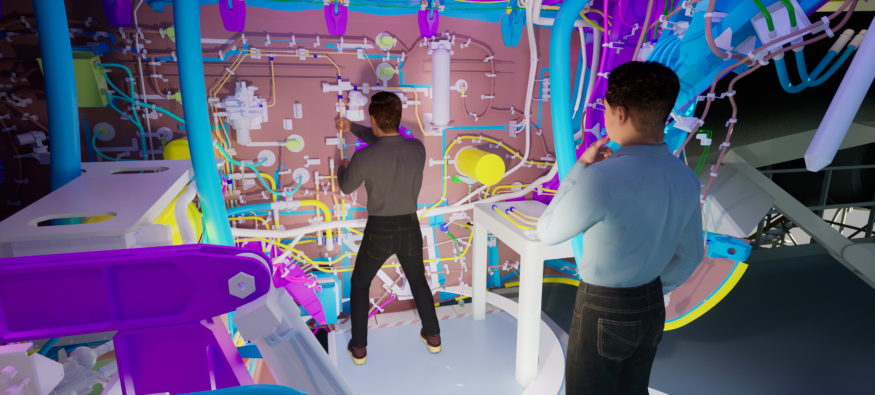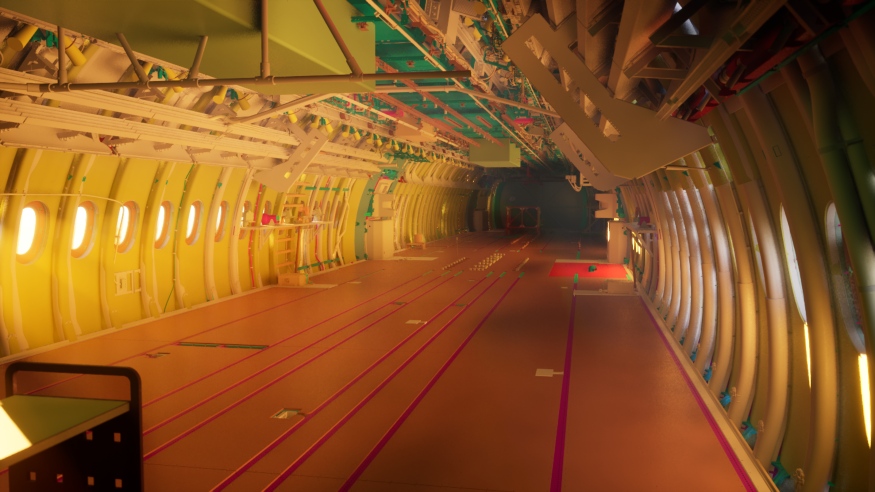Is Virtual Reality software beneficial in the industrial sector?
Already in many users’ scopes, virtual reality softwares have increased their presence in the professional world and find numerous industrial applications thanks to VR software units.
However, it is important to know the difference between a professional VR software and VR solutions dedicated to the general public, mainly developed in the video games universe.
A leap forward for industrial production
Besides the advertisement aspect in which the user progresses in a post-apocalyptic world or drives a Formula 1, VR software techs find real application alongside industrial companies.
For industrial sectors such as aeronautics, aerospace or even the oil industry, the development of specific products can be accompanied by implementation in real conditions, dedicated to design or innovation, thanks to powerful virtual realities softwares.
Likewise, success of teamwork of which strongly depends on an ability to collaborate quickly and easily on a daily basis throughout the duration of a project, can be improved through a virtual collaboration solution.
3 areas of application for industrial virtual reality software
The use of industrial virtual reality software generally finds its application in three areas: engineering, manufacturing and learning.
Improve engineering design
In a product engineering design process, a VR product solution will allow the creation of an immersive environment to collaborate efficiently with colleagues or partners.
It will be easy to discuss, annotate, design or comment the project directly with the client during its conception.
Evaluate ergonomics and accessibility during the design and manufacturing phases of a product
A VR application will allow a phase of validation of the product concept, to evaluate the ergonomics, to check the accessibility, to simulate the assembly sequence specific to the product. Team members in charge of the project will be able to interact as users or product operators.
Train and transmit knowledge to teams
Finally, the notion of learning and transmission of technological knowledge to the teams, will also be significantly simplified by the use of a virtual reality software.
It’s possible to train a team to make technical and delicate movements, without any trial or time limit (except those specified by the customer for the realization of the product).
Then, will start the learning process of virtual reality, but also the fulfilment of specific task sequences or verification of skills and expertise acquired.
Customization, autonomy and power thanks to virtual reality technologies
Virtual reality software for industries must allow to acquire autonomy in the realization and the customization of projects that are technological, industrial, cooperative, etc. The purpose is to be able to configure its VR application and customize its own VR experience to precisely fulfill the needs of the project.
A stand-alone VR solution offering autonomy must allow the user to create their own VR session.
Meeting industry demands with SkyReal VR
The VR software developed by SkyReal was conceived to answer the requirements of the industry, for Airbus in particular. It was then experimented with Airbus and Ariane Espace.
This software works with a paid licence giving access to new versions almost every two months. Those licences can be easily downloaded. Clients can constantly adapt their VR environment thanks to the latest updates of the software.
Using virtual reality in an industry requires power
In terms of performances, they are real and well-known by the users.
Indeed, it is possible to load very large models (like those of Airbus) and use them in a collaborative VR session for example.
The combination of SkyReal algorithmes and the UnReal engine can reach substantial performances.
The success of the integration of a virtual tool in an industrial project will depend on the experience provided by the VR software itself.
The VR software developed by SkyReal relies on a ten year work and iterative developments, also by a real operational application in many industries such with Airbus among others.





